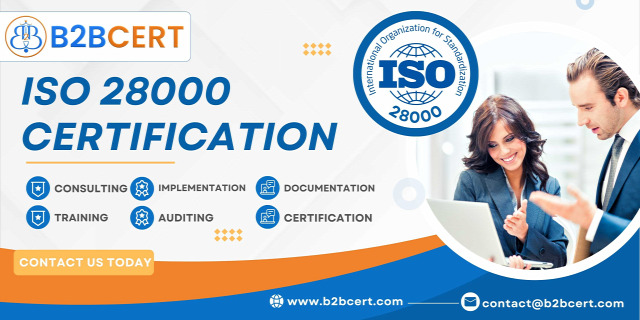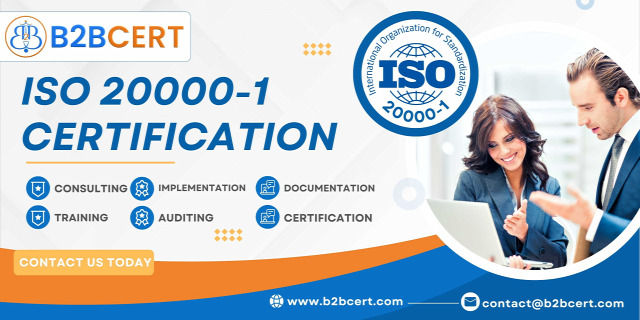
ISO 28000 certification is an essential standard for organizations involved in the supply chain, logistics, and transportation sectors. This certification focuses on the security of the supply chain and ensures that organizations can identify and manage risks effectively. As businesses in Phoenix increasingly engage in global trade and complex logistics networks, the importance of securing the supply chain has never been more critical. ISO 28000 helps organizations protect their operations, safeguard sensitive information, and build trust with clients and stakeholders.
In this guide, we will explore the key components of ISO 28000 Certification in Phoenix , focusing on its implementation, the services available in Phoenix to assist organizations with certification, and the audit process required for achieving this important standard.
ISO 28000 Implementation in Phoenix
Implementing ISO 28000 certification in Phoenix involves a structured approach to ensure that your organization meets the security management requirements defined by the standard. The implementation process typically follows several key stages, each designed to address different aspects of the supply chain security management system.
Understanding the Requirements: The first step in ISO 28000 implementation is understanding the standard's requirements. ISO 28000 provides a framework for managing supply chain risks, covering everything from physical security measures to information security controls. Organizations in Phoenix must familiarize themselves with the key requirements and tailor them to their specific supply chain environment.
Risk Assessment and Management: A key element of ISO 28000 is identifying and mitigating potential risks across the supply chain. This involves conducting a thorough risk assessment to understand vulnerabilities, such as disruptions in logistics, cyber threats, or breaches in physical security. In Phoenix, organizations need to work with risk management professionals to identify both internal and external threats that could impact their operations.
Design and Implement Security Controls: Once the risks are identified, the next step is to design and implement appropriate security controls. These controls may include access management systems, emergency response plans, and data encryption protocols. It is essential to align these controls with ISO 28000's specifications to ensure comprehensive protection for the supply chain.
Documentation and Policy Development: A vital aspect of the ISO 28000 implementation process is documentation. Organizations in Phoenix need to develop policies, procedures, and records that detail the implemented security measures and their effectiveness. These documents will serve as evidence during the audit process and demonstrate the organization's commitment to supply chain security.
Training and Awareness: To ensure the successful implementation of ISO 28000, training employees at all levels is critical. This includes educating staff about their roles in maintaining security, conducting regular drills, and fostering a culture of awareness regarding supply chain risks. In Phoenix, many companies partner with consultants who specialize in ISO 28000 training to ensure their workforce is well-prepared.
Continuous Improvement: ISO 28000 Implementation in Vietnam is not a one-time effort; it requires ongoing monitoring and improvement. Organizations must regularly evaluate their security measures and adapt them to meet emerging risks. Using key performance indicators (KPIs) and other metrics, companies in Phoenix can track the effectiveness of their security controls and make adjustments as needed.
ISO 28000 Services in Phoenix
In Phoenix, numerous service providers specialize in assisting organizations with the ISO 28000 certification process. These services help streamline the implementation of security management systems, making it easier for businesses to achieve certification.
ISO 28000 Consulting: Consulting firms in Phoenix offer expert guidance on how to implement ISO 28000, helping businesses understand the requirements, perform risk assessments, and design appropriate security systems. Consultants work closely with organizations to tailor ISO 28000 practices to fit their unique supply chain needs, providing actionable recommendations for improvement.
Risk Management Services: Supply chain security is built on understanding and mitigating risks. Many firms in Phoenix provide risk management services, including risk assessments, security audits, and threat analyses. These services help identify vulnerabilities in the supply chain and develop strategies to manage and reduce potential risks.
ISO 28000 Training: To ensure the successful adoption of ISO 28000, specialized training services are available in Phoenix. These training programs cover topics such as risk management, security controls, and audit preparation. Training is provided to employees at all levels, from executive teams to operational staff, ensuring that everyone understands their responsibilities in maintaining supply chain security.
Documentation and Policy Support: Developing the necessary documentation and policies is a critical part of ISO 28000 certification. Consulting firms in Phoenix assist businesses by creating the required records, including risk management plans, security protocols, and incident response procedures. This documentation is crucial for demonstrating compliance during the audit process.
Ongoing Support and Maintenance: Achieving ISO 28000 Services in Zambia is just the beginning. Businesses in Phoenix can engage with service providers who offer ongoing support, ensuring that their supply chain security systems remain up to date. Regular security reviews, audits, and continuous improvement plans are integral to maintaining ISO 28000 compliance.
ISO 28000 Audit in Phoenix
The final step in the ISO 28000 certification process is the audit, which verifies whether an organization has implemented the necessary supply chain security controls and meets the standard's requirements.
Pre-Audit Assessment: Before undergoing the formal ISO 28000 audit, many organizations in Phoenix opt for a pre-audit assessment. This evaluation helps identify potential areas of non-compliance and gives businesses an opportunity to address issues before the official audit. A pre-audit is typically conducted by an external consultant or auditing firm.
Types of ISO 28000 Audits: The ISO 28000 audit can be either internal or external. An internal audit involves an organization assessing its own processes to ensure compliance with the standard. External audits are conducted by an independent third party and provide an unbiased evaluation of the organization's supply chain security measures. External audits are required for ISO 28000 certification.
Audit Process: During the audit, the auditor will review the organization's security measures, documentation, and risk management practices. The audit process includes interviews with employees, inspection of records, and examination of security protocols to ensure that the organization meets ISO 28000 standards. Auditors will also check whether the implemented controls effectively mitigate identified risks.
Certification Report and Corrective Actions: After completing the audit, the auditor will provide a report detailing the findings and, if necessary, recommendations for corrective actions. If the organization meets the ISO 28000 requirements, they will be issued a certificate. If gaps are identified, the company will need to address these issues and undergo a follow-up audit to ensure compliance.
Surveillance Audits: After achieving certification, organizations in Phoenix must undergo periodic surveillance audits to maintain their ISO 28000 certification. These audits ensure that the security management system continues to operate effectively and meets the standard's evolving requirements.
Conclusion
ISO 28000 Registration in Uganda is a strategic investment for businesses in Phoenix involved in the supply chain and logistics sectors. By implementing robust security measures, managing risks effectively, and complying with ISO 28000 standards, organizations can protect their operations, enhance trust with clients, and gain a competitive edge in the marketplace. With a range of consulting, training, and audit services available in Phoenix, businesses have the support they need to successfully navigate the certification process and maintain ongoing compliance.



